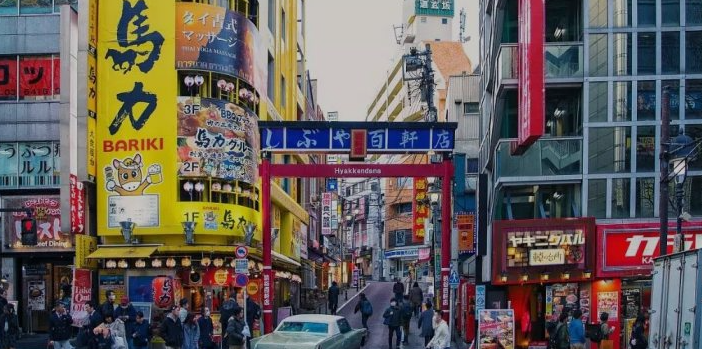- EasyCard
- Trade
- Help
- Announcement
- Academy
- SWIFT Code
- Iban Number
- Referral
- Customer Service
- Blog
- Creator
How to choose a Japanese work visa for overseas workers: Visa options from technical workers to executives
In recent years, the demand for foreign workers in Japan’s labor market has been continuously increasing. Especially in the fields of technical workers and high-skilled talents, Japan has become an important destination for global talent flow. Whether it’s a technical expert in the IT field, a worker in the manufacturing or construction industry, or a senior manager of a multinational company, Japan has corresponding visa policies to attract and place these foreign talents.

However, facing numerous visa types and application conditions, how to choose the most suitable work visa according to one’s own situation has become a problem for many overseas workers. Choosing wrongly may lead to application delays or rejections, and even affect future career development. Therefore, understanding the characteristics of different types of visas and making choices according to personal circumstances is the key to successfully obtaining a Japanese work visa.
Visa options for technical workers
For technical workers, there are relatively rich types of work visas in Japan, mainly including the following two categories:
Technical, Humanistic Knowledge, and International Service Visa
This type of visa is suitable for foreign professional talents engaged in industries such as technology, engineering, finance, education, and translation. The Technical, Humanistic Knowledge, and International Service Visa is one of the most common Japanese work visas and is suitable for those workers with certain professional skills. Applicants usually need to have a bachelor’s degree or above and certain work experience. Typical applicants include IT engineers, financial analysts, translators, teachers, etc.
Application conditions:
Educational requirements: Applicants usually need to have a bachelor’s degree or above, or have professional skills and experience related to the position.
Annual salary requirements: Although Japanese law does not clearly stipulate that the annual salary must reach a certain standard, usually, the applicant’s annual salary needs to reach a certain level (most industries require at least 3 million yen/year). The specific amount may vary according to the industry, position, and company size. For example, in the IT and financial industries, the annual salary requirements are usually higher, while in the education or service industries, the annual salary requirements may be relatively lower.
Employer requirements: Applicants need to provide a work contract from a Japanese company, and this contract must comply with Japanese labor laws, including appropriate wage levels and working hours.
Applicable fields:
IT and software development.
Engineering technology (such as mechanical and electrical engineering).
Education (such as foreign language teachers).
Finance and accounting.
Translation and international services.
Specified Skills Visa
The Specified Skills Visa is a visa category launched for industries with labor shortages in Japan, especially in industries such as construction, nursing, agriculture, and catering. The visa aims to attract foreign labor to fill the labor market gap in Japan, especially for positions with lower technical requirements. Workers entering Japan through this visa usually need to have basic industry skills and pass skill tests.
Application conditions:
Skill test: The Specified Skills Visa requires applicants to pass relevant skill tests to prove their sufficient work ability. Skill tests are usually organized by relevant Japanese institutions or industry associations, covering industries such as construction, catering, and nursing. Different industries will have different test standards.
Specifically, skill tests usually include:
Theoretical examination: Examining relevant technical knowledge or industry knowledge.
Practical operation test: Requiring applicants to conduct practical operation demonstrations to verify their skill levels in specific fields.
Industry experience: Applicants need to have a certain number of years of work experience, usually at least 2 years or more. This experience requirement is mainly evaluated through work certificates. Employers need to provide certification documents, including labor contracts and job experience descriptions. These certification materials should be able to clearly reflect the applicant’s job content, years of work, and skill level in this position.
Applicable industries:
Construction and building engineering.
Catering industry.
Nursing industry.
Manufacturing and agriculture.
Visa options for corporate executives
For senior managers or corporate executives, choosing the right visa is even more crucial. Japan has a special visa category for foreign senior managers - the Highly-Skilled Professional Visa.
Highly-Skilled Professional Visa
The Highly-Skilled Professional Visa is a visa established by the Japanese government to attract highly skilled and highly educated foreign talents. For corporate executives, scientific researchers, technical experts and other high-end talents, applying for the Highly-Skilled Professional Visa can enjoy a faster path to permanent residence. This visa adopts a point system. Applicants are scored according to factors such as education, work experience, and salary. After reaching a certain score, they can obtain a visa.
Application conditions:
Educational requirements: Usually, a master’s degree or above is required, or have strong work experience.
Point system: The Highly-Skilled Professional Visa adopts a point system and scores applicants according to aspects such as education, annual salary, work experience, and research results. If the total score reaches 70 points or more (bonus items such as an annual salary of more than 10 million yen can earn points), the visa can be obtained quickly.
Position requirements: This visa is applicable to corporate senior managers, scientific research experts, and staff in other special technical positions.
Accelerated permanent residence: Foreign nationals holding the Highly-Skilled Professional Visa can usually obtain permanent residence status faster. Highly-skilled talents meeting certain conditions can apply for permanent resident status after 3 years, while ordinary work visas usually require more than 5 years.
After obtaining the visa, foreign executives and other corporate employees will also face many challenges in real life, including how to handle personal and family financial issues. For overseas workers going to Japan to work, cross-border payments and international remittances often become practical problems that must be solved, and the multi-asset wallet BiyaPay can just solve this problem.
As a convenient cross-border payment tool, BiyaPay can help foreigners easily manage personal funds. With BiyaPay, you can enjoy local transfer services in most regions of the world. The handling fee is as low as 0.5%, and the funds can arrive on the same day. Therefore, BiyaPay is especially suitable for overseas users who need to make payments in emergencies.
For those users who use digital currency, BiyaPay also supports real-time exchange of digital currency into mainstream legal currencies such as US dollars and pounds, making cross-border remittances and fund management easier and safer. Whether it’s salary transfer, daily consumption, or remittance back to the country, BiyaPay can provide an efficient and safe payment solution to help you better adapt to life in a foreign country.
Visa options for students transitioning to work after studying abroad
For many foreign students who have just studied in Japan, converting a student visa to a work visa is a common way to enter the Japanese labor market. The Japanese government allows international students to stay and work in Japan after graduation and continue to reside through appropriate visa categories.
Conversion of student visa to technical visa
Holders of student visas can obtain a Japanese work visa by finding a job after graduation. Usually, graduates can apply for the Technical, Humanistic Knowledge, and International Service Visa and apply for positions based on their professional background and educational qualifications. After finding a job that meets the requirements, students can convert to a formal work visa.
Application conditions:
A formal work contract provided by a Japanese enterprise is required, and the position requires at least a bachelor’s degree or corresponding professional skills.
Graduates with master’s degrees or above usually find it easier to find positions that meet the requirements of technical visas.
How to convert to a Highly-Skilled Professional Visa or other visa categories after studying abroad
For students with excellent grades who enter high-end positions after graduation, applying for a Highly-Skilled Professional Visa is also a possibility. The biggest advantage of this type of visa is that it can speed up the acquisition of permanent residence.
Other special visa categories
Investment Management Visa
Foreign entrepreneurs can establish and operate companies in Japan through the Investment Management Visa. This type of visa usually requires applicants to invest a certain amount in Japan (usually more than 5 million yen) and be able to prove the company’s operating conditions and profitability.
Intra-company Transfer Visa
Employees of multinational companies who are transferred to work in Japan can apply for an intra-company transfer visa. This type of visa is applicable to foreign employees transferred between companies in the same group and requires applicants to have certain work experience in the enterprise.
Visa application precautions
When applying for a Japanese work visa, in addition to meeting the basic qualification conditions, there are also some key precautions to pay attention to:
Work contract and salary certificate: Provide a clear work contract and salary certificate to prove that your income meets Japan’s basic living standards.
Language requirements: Although some visa categories do not have strict requirements for Japanese language proficiency, having good Japanese language ability will increase the probability of successful visa application.
Tax and social insurance: Pay attention to Japan’s tax regulations and social insurance requirements to ensure that your tax payment records meet the requirements.
Different Japanese work visas are suitable for overseas workers with different occupational backgrounds. Whether you are a technical worker, a corporate executive, or a graduate student studying abroad, choosing the right visa category is crucial for your career development in Japan. Understanding visa types and application conditions and planning the visa application path in advance will help you smoothly enter the Japanese job market and develop here in the long term.
*This article is provided for general information purposes and does not constitute legal, tax or other professional advice from BiyaPay or its subsidiaries and its affiliates, and it is not intended as a substitute for obtaining advice from a financial advisor or any other professional.
We make no representations, warranties or warranties, express or implied, as to the accuracy, completeness or timeliness of the contents of this publication.




Contact Us
Company and Team
BiyaPay Products
Customer Services
is a broker-dealer registered with the U.S. Securities and Exchange Commission (SEC) (No.: 802-127417), member of the Financial Industry Regulatory Authority (FINRA) (CRD: 325027), member of the Securities Investor Protection Corporation (SIPC), and regulated by FINRA and SEC.
registered with the US Financial Crimes Enforcement Network (FinCEN), as a Money Services Business (MSB), registration number: 31000218637349, and regulated by FinCEN.
registered as Financial Service Provider (FSP number: FSP1007221) in New Zealand, and is a member of the Financial Dispute Resolution Scheme, a New Zealand independent dispute resolution service provider.



















